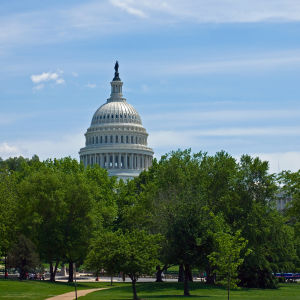The Johnson report on how the FCC arrived at its decision to reclassify Internet Service Providers as common carriers under Title II is a 30 page version of that wonderful 20 seconds in Casablanca—Inspector Renault says “I’m shocked, shocked, to find that gambling going on in here” and then is provided his winnings—except that it completely lacks the Inspector’s self-awareness of its own comedy. A completely political document professing shock at discovering circumstantial evidence of politics inside the beltway? That’s pretty darn amusing.
Consider the breathless revelations. Is anyone really surprised that a Chairman adjusts his view in a proceeding in a way that causes an administrative law attorney to raise a notice question? Has there ever been a proceeding in which a staff lawyer didn’t say an argument or conclusion could use more evidentiary support? Are we shocked that press people ask advice for how to respond to a front-page story? If you are running an agency, this is the give and take you want from your lawyers and press aides. In my experience as Chief of Staff of the FCC and Executive Director of the National Broadband Plan, these were daily events, evidence of a policy and legal bureaucracy working appropriately, not evidence of influence most foul. I don’t know who wrote or reviewed the report but I’d lay heavy odds none ever had the managerial responsibility to produce a rule making subject to litigation, as the report is devoid of any understanding of how that process actually works. I’d also bet that public disclosure of Senator Johnson’s staff emails would show similar questions being internally raised.
Even more comedic is the selective outrage. The gravamen of the report is the White House secretly influenced the FCC Chairman to reverse his position on the Title II reclassification issue. While the President stating his policy preferences on You-Tube doesn’t fit my definition of secret, I cannot deny such a secret meeting did occur. Unfortunately for the report’s credibility, it never mentions that event, which occurred in May 2010 when NEC head Larry Summers privately convinced then FCC Chairman Julius Genachowski to reverse his public stance favoring “Title II Lite.”
The Obama White House is not alone in having meetings. For example, in the run up to the biggest vote of Chairman Powell’s tenure, on whether to continue an unbundling requirement, the Chairman and Commissioner Kevin Martin both had meetings with White House staff to discuss the Chairman’s proposal. I personally have no problem with any conversations the Obama or Bush (or Clinton or Reagan) White Houses had with any members of the FCC. I do have a problem with Congress cherry-picking history, as well as pretending there is a process problem where the real objection is the Senator didn’t like a specific outcome.
In finding this laughable, I’m not suggesting that administrative law requirements like notice are unimportant. But a robust public process always causes changes in a proposed rule. Adopting the Report’s narrow reading the notice requirement would cause endless loops of notice and comments.
Nor am I trivializing the substantive debate over net neutrality. Complaining about notice in the context of that issue, however, is rich with irony. I wrote my first Wall Street analysis of the issue in December 2002. Since then, no issue has occupied more time at the Commission or garnered more attention from policy-makers. Does anyone really believe the parties did not have notice of the potential outcomes of the 2014-2015 proceeding?
There are two tragedies here. Neither involve actions by the FCC. The first is that taxpayer dollars were spent gathering information (including taking up FCC staff time) and writing the report, when the Committee said nothing that could not be gleaned by spending a buck to buy the Wall Street Journal story on the same subject (which, unlike the Johnson report, did have the intellectual consistency to note the Summers/Genachowski meeting.)
The other tragedy is the over investment of political capital on Title II, in ways that cause us to under invest in considering other issues. I admit to being in an exceedingly small minority that believes both the benefits and costs of the decision are exaggerated. For me, there are three core broadband questions: how do we deploy affordable, abundant bandwidth everywhere, how do we get everyone on, and how do we use the broadband platform to better deliver public goods and services? When we address those questions well, we improve the economic and civic prospects of our communities. The Johnson Report does nothing to help with those challenges. Rather, it is taxpayer-funded political theater—comedic yes, but not enough to justify the price–that distracts us from the important and more productive tasks required for leadership in the global information economy.

